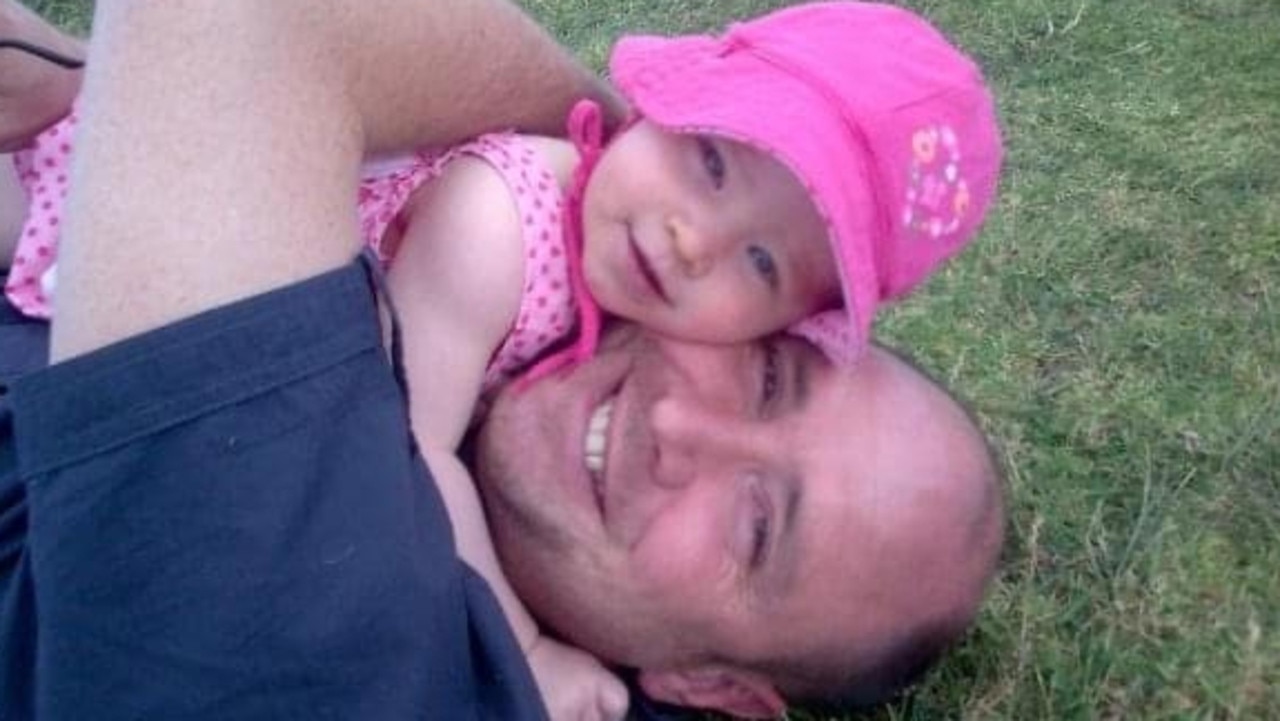Ingham crocodiles: Public warned for feeding saltwater crocs near high school
Members of a North Queensland town have received a talking to for feeding a wild saltwater crocodile lurking near a high school.
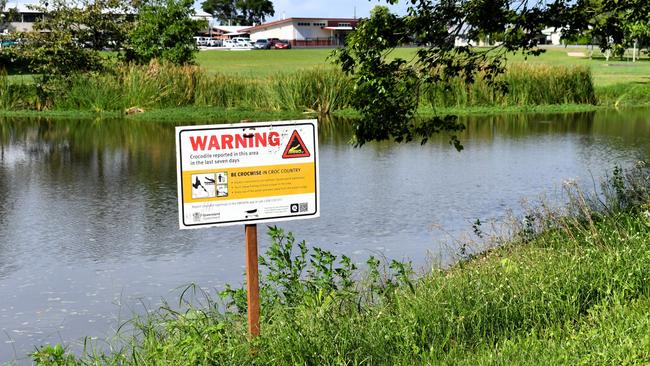
News
Don't miss out on the headlines from News. Followed categories will be added to My News.
A government department has given members of a North Queensland town a talking to for allegedly feeding a wild saltwater crocodile lurking near a high school.
The Department of Environment, Science and Innovation confirmed on Tuesday that Wildlife Officers had been forced to remove a small crocodile from Palm Creek at Garbutt Park in Ingham.
The creek, about 200 metres from Ingham State High School, is often home to crocodiles, including a notorious two-metre saltie that made headlines for evading repeated attempts to catch it in 2022.
Wildlife Officer Ella Meeve said DES had received a report of a one-metre crocodile in the park in the wake of Cyclone Jasper in December.
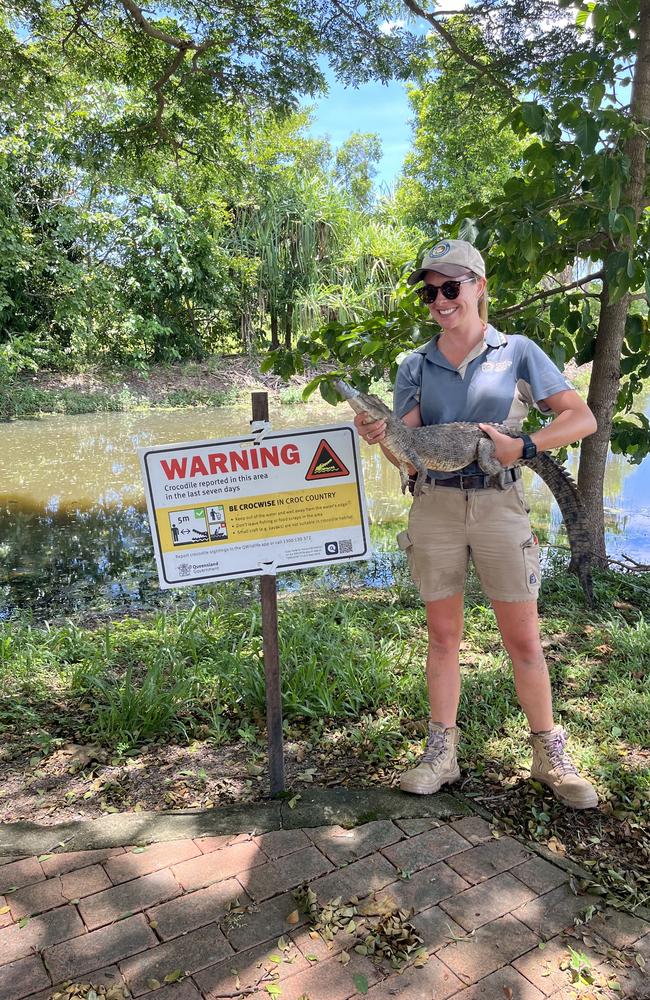
“We conducted a site assessment and observed the animal on the bank near a park bench,” she said.
“Unfortunately, we also observed discarded food in the park, and the crocodile’s behaviour indicated that it had been fed.”
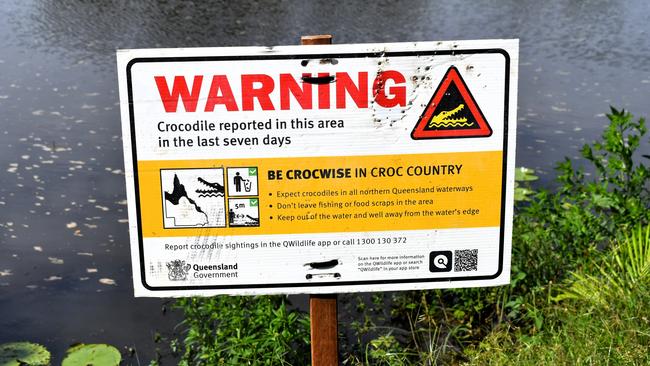
Ms Meeve said that as a result of the human interaction, “the crocodile had become habituated and was deemed to be a risk to public safety.”
“Although the crocodile measured only one metre in length, feeding crocodiles is extremely foolish as it places the public in danger,” she said.
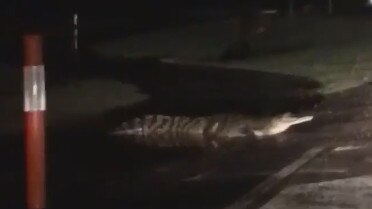
“The crocodile was transported directly to a licensed farm.”
A 2.8-metre long saltwater crocodile, also known as estuarine crocodiles, was wrangled from Palm Creek in the centre of Ingham in December.
DES urged people living in “Croc Country” to report all crocodile sightings.
“Wildlife officers investigate every sighting report,” a spokesperson said.
Crocodile sightings can be reported by using the QWildlife app, submitting a sighting report via the DES website or by calling 1300 130 372.
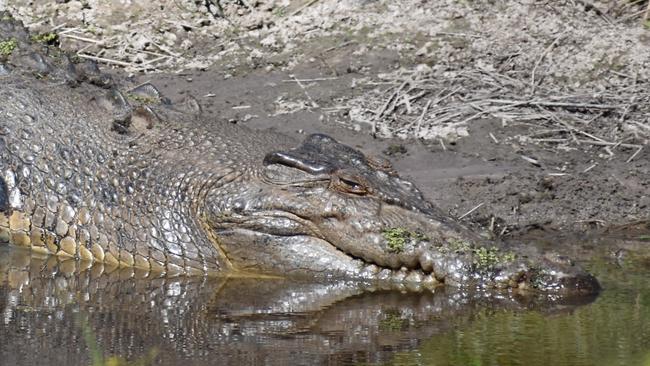
Crocwise tips for Queenslanders:
• expect crocodiles in all northern and far northern Queensland waterways even if there is no warning sign
• obey all warning signs – they are there to keep you safe
• be aware crocs also swim in the ocean and be extra cautious around water at night
• stay well away from croc traps – that includes fishing and boating
• the smaller the vessel the greater the risk, so avoid using canoes and kayaks
• stand back from the water’s edge when fishing and don’t wade in to retrieve a lure
• camp at least 50 metres from the edge of the water
• never leave food, fish scraps or bait near the water, camp sites or boat ramps
• never provoke, harass or feed crocs
• always supervise children near the water and keep pets on a lead.
More Coverage
Originally published as Ingham crocodiles: Public warned for feeding saltwater crocs near high school




